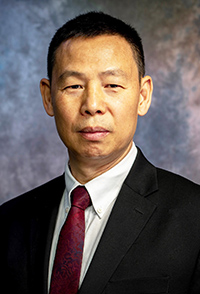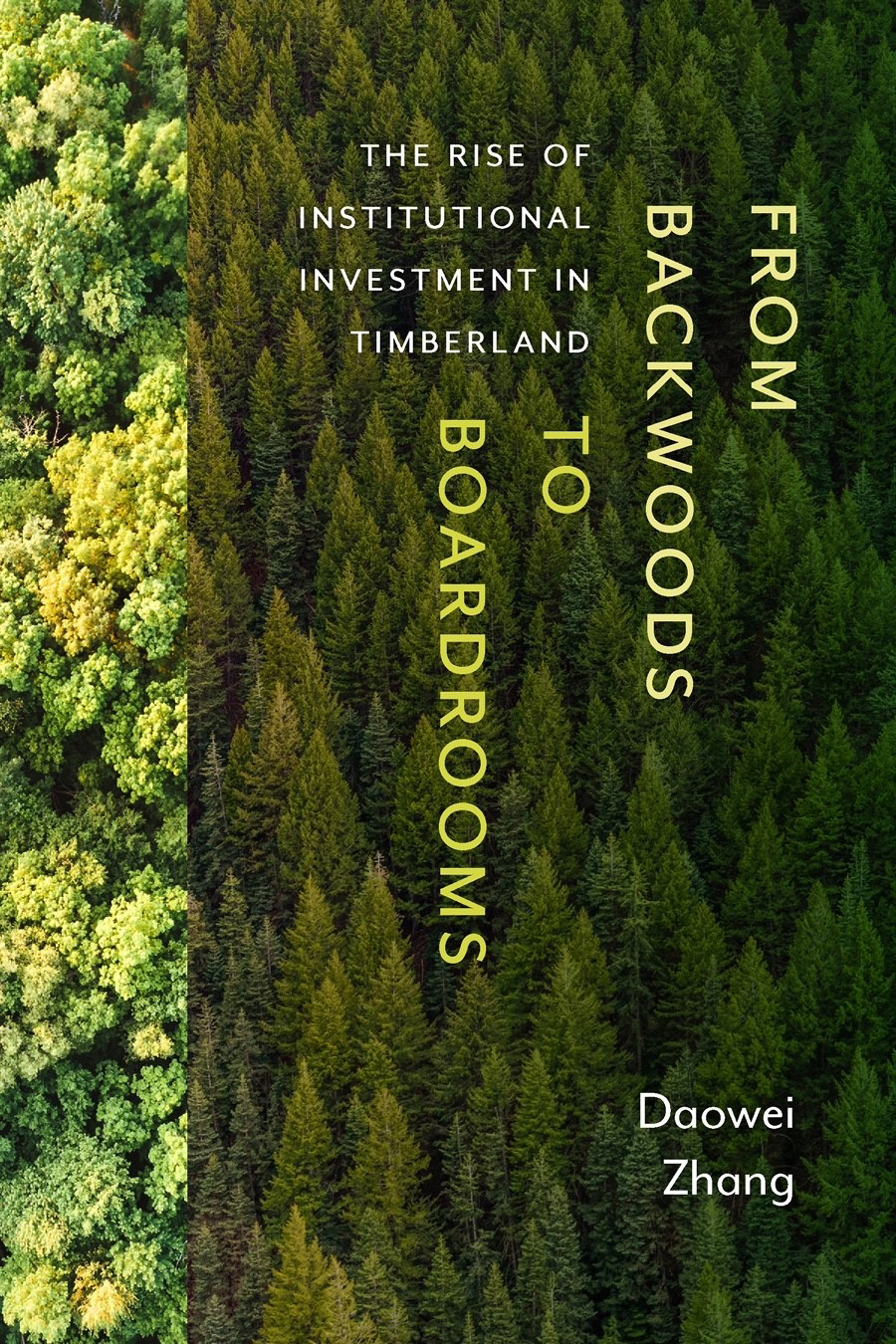A new book by an Auburn University professor tracks the dramatic pivot in commercial forest ownership—lands once overwhelmingly owned by integrated forest products companies that have, in the past four decades or so, become the domain of institutions.
“The transformation of commercial private forest ownership in the U.S. and worldwide is an important event in the history of forestry that has significant implications on forest sustainability,” said Daowei Zhang, the Alumni and George W. Peake Professor of Economics and Policy and associate dean of research in Auburn’s School of Forestry and Wildlife Sciences.
Zhang’s new book, “From Backwoods to Boardrooms: The Rise of Institutional Investment in Timberland,” published by Oregon State University Press, investigates the history and economics of forest ownership and its significant implications. The book, expected in bookstores Sept. 15, is available for preorder at most major online book retailers.
The book reaches back to the early 1900s to track two major structural changes in forestland ownership in the U.S. and other parts of the world. The first major change, taking places from 1900 to the 1980s, was the accumulation of industrial timberlands mostly from farmers and other small private forest owners. The second—and the one most emphasized—is the four-decade shift from industrial to institutional ownership.
“The scale of the change is truly revolutionary and impacts tens of millions of acres of mostly productive private landholdings, billions of dollars of investment, as well as forest sustainability,” Zhang said of the shift. “Arguably, it is one of the top three economics and policy matters in the forest sector in the U.S. in the last 60 years.”
And while Zhang and many of his peers have observed what he calls a “revolution in ownership” and its inevitable impacts, one of the publisher’s book reviewers noted that no one had given the matter enough reasoned and thoughtful attention to tell the complex story of how it came about and where it may lead. Until now.
Researching and writing the book—in addition to his teaching, academic work and everyday life—was a nine-year process, he said.
Though Zhang had been paying attention to the transformation since 1993, it was after reading that International Paper Company—one of the largest timberland owners in the world—planned to sell virtually all its timberlands, that he conceived the idea for the book in 2005.
“My feeling then was, ‘the game is over,’ that industrial timberland ownership was coming to an end, and that there needs to be a book about it,” Zhang said. Indeed, the transformation was completed around 2010 or 2011. And now, nearly 10 years later, he has completed a book on the topic.
Zhang examines key events, economic rationale, corporate management philosophies, public policy and institutional factors through history in search of an explanation for this major shift. Assessing the impact of the ownership revolutions, he offers commentary on the future of institutional timberland investments and how they may impact global forest sustainability. He also contributes to the assessment of timberland value—a multi-century issue that fascinates economists, forest economists and tax assessors—and the empirical examination of timberland investment returns.
“I hope the book is a useful reference for forest landowners, managers, investors and anyone who’s interested in the workings of the modern forest sector and the future of forest sustainability,” Zhang said.
Janaki Alavalapati, dean of the School of Forestry and Wildlife Sciences, said the book ventures into uncharted territory in terms of trends in forest ownership and the changes they have forged.
“Through prolific research and thoughtful observations, Dr. Zhang has written a noteworthy book that chronicles forest ownership and its consequences, beginning more than a century ago and reaching into the present and future impacts of these significant shifts,” Alavalapati said.
Zhang has served on the board of directors of the Pinchot Institute for Conservation and as senior forestry officer and team leader for Climate Change and Resilience at the Food and Agriculture Organization of the United Nations. He is a recipient of the Scientific Achievement Award of the International Union of Forest Research Organizations, or IUFRO, and the Society of American Foresters’ Award, or SAF, in Forest Science. He is an SAF fellow and the author of more than 130 refereed articles, books and book chapters.
The Market and Trade Program of the U.S. Department of Agriculture National Research Initiatives Competitive Grants Program provided funding for Zhang’s earlier research on the subject, and the Bradley/Murphy Forestry and Natural Resource Extension Trust in Birmingham, Alabama, provided financial support for further research that contributed to the book.
(Written by Teri Greene)












